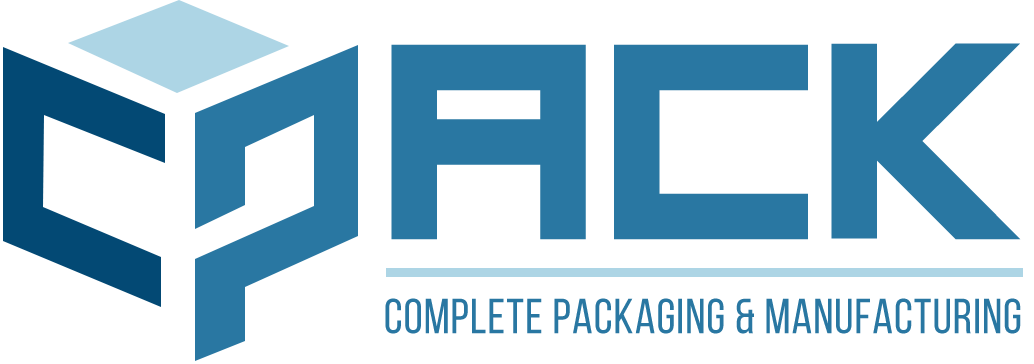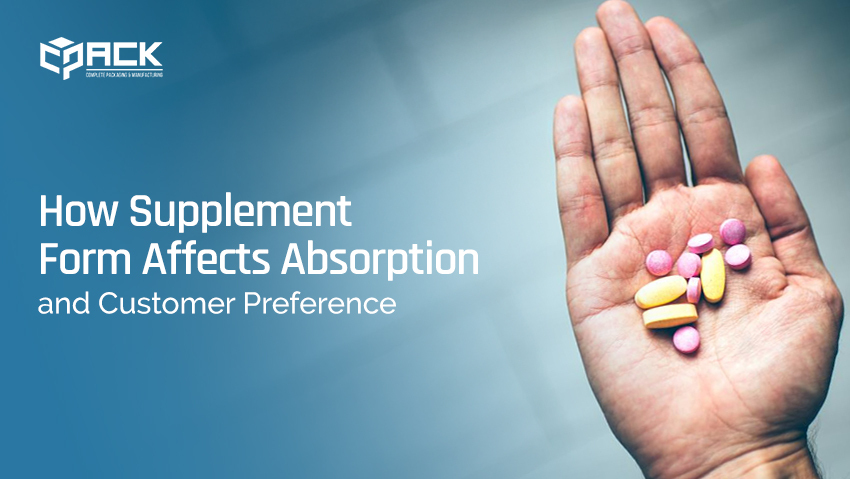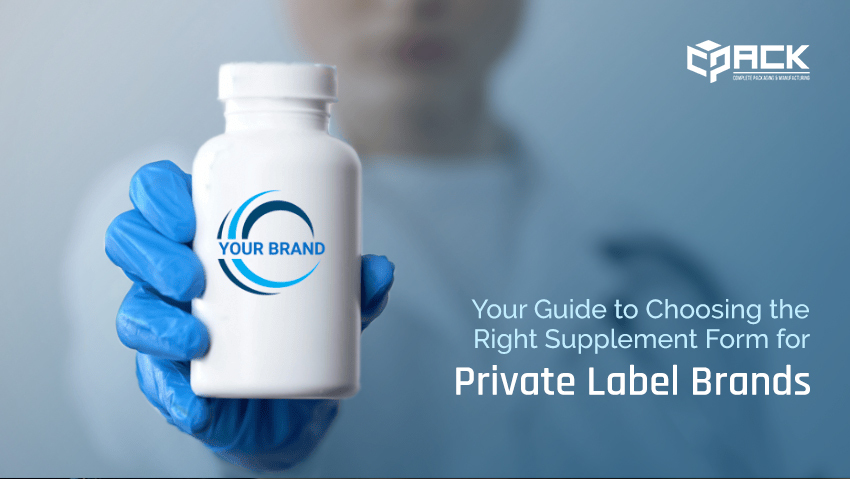When it comes to supplements, the saying “form follows function” couldn’t be more true. Whether your formula is delivered as a capsule, powder, tablet, or gummy. The form not only influences absorption and bioavailability but also shapes customer perception and buying decisions.
Choosing the right supplement form can elevate a brand from idea to market leader. This article explains how supplement form affects nutrient absorption, user preference, and brand success, and helps you decide which format best fits your goals.
Learn more about choosing between powder and capsule supplements here.
Why Supplement Form Matters More Than Ever
In the competitive nutraceutical industry, your product’s form can make or break its success. Modern consumers are more informed and selective than ever. They are looking for supplements that are not only effective but also convenient and pleasant to take.
According to a 2024 report by Grand View Research, the global dietary supplements market is projected to reach $170.1 billion by 2034, driven by increasing health awareness and personalized nutrition trends.
To stand out in this growing market, supplement brands must consider how delivery formats affect both efficacy and consumer experience.
The Science of Absorption
So the question is, “How does form influence bioavailability?” Let’s figure out the answer. Different supplement forms affect how quickly and efficiently the body absorbs those particular nutrients. Scenarios are different in every case.
Capsules
Capsules, whether gelatin or vegetarian, offer precise dosing, taste masking, and protection from oxidation. Nutrients enclosed in capsules are typically released in the stomach, where they dissolve rapidly for quick absorption.
- Best for: Fat-soluble vitamins, herbal extracts, probiotics
- Absorption rate: Moderate to high, depending on capsule composition and coating
- Cpack advantage: Cpack’s capsule manufacturing process ensures consistency, purity, and optimized dissolution rates.
Powders
Powders, on the other hand, offer flexible dosing and often provide faster absorption because nutrients are already in dissolved form. This makes them ideal for athletic performance, hydration, and meal replacement products.
- Best for: Amino acids, pre-workouts, protein blends, greens powders
- Absorption rate: Rapid, due to direct solubility
- Cpack advantage: Our powder manufacturing process uses advanced blending and flavouring systems to ensure homogeneity and shelf stability.
Gummies
Gummies are the fastest-growing supplement form and for good reason. They combine great taste, easy consumption, and visual appeal, which makes them highly attractive to a broad audience.
Gummies turn supplementation into a daily treat rather than a task, boosting customer compliance and repeat purchases.
- Best for: Multivitamins, collagen, apple cider vinegar, elderberry, and sleep support formulas
- Absorption rate: Moderate nutrients are absorbed via digestion, though sublingual absorption can occur for certain active compounds
- Cpack advantage: Cpack’s gummy manufacturing services utilize precision dosing, flavour masking, and pectin- or gelatin-based formulations to meet diverse dietary preferences.
Softgels
Softgels are prized for high absorption and a premium appearance. Their oil-based interior enhances nutrient delivery and protects delicate ingredients from oxidation.
- Best for: Omega-3s, vitamin D, herbal extracts
- Absorption rate: High
- Cpack advantage: Cpack’s softgel production uses advanced encapsulation technology to ensure uniformity, clarity, and reliable shelf life.
Liquids
Liquid supplements offer fast absorption and flexible dosing, ideal for people who prefer drinkable or sublingual forms. They deliver nutrients efficiently while providing flavor customization options.
- Best for: Multivitamins, herbal blends, children’s or senior formulas
- Absorption rate: Very high
- Cpack advantage: Cpack’s liquid manufacturing uses precision filling and stabilization processes to maintain potency, consistency, and taste quality.
Recent data from SPINS revealed that the liquid supplement market grew by 8.74% from 2025 to 2032, particularly in immunity and wellness categories.
Bioavailability: Why “More” Doesn’t Always Mean “Better”
A supplement’s bioavailability, “the percentage of active ingredient that enters the bloodstream,” is often more important than its dosage.
For example, liposomal formulations can significantly increase absorption for certain vitamins (like Vitamin C or curcumin), compared to standard powders or capsules.
Pro tip for supplement brands: Partner with a manufacturer that understands advanced formulation technologies to maximize absorption and differentiate your product in the market.
The Psychology Behind the Purchase (Why Format Matters More Than Formula)
Here’s something most supplement brands miss:
Your formula might be scientifically perfect. Your ingredients might be top-tier. Your dosing might be clinically validated.
But if the format doesn’t match what your customer expects? They won’t buy it. Because supplement purchases aren’t purely rational. They’re emotional decisions wrapped in logical justifications.
Capsules: The Authority Signal
When someone picks up a bottle of capsules, their brain makes instant associations:
“This is serious. This is medical-grade. This was made by people who know what they’re doing.”
Capsules carry pharmaceutical credibility—even when they’re just vitamins inside. There’s a reason every prescription medication comes in capsule or tablet form.
Who capsules speak to:
- Professionals who want efficiency (take it with your morning coffee, done)
- First-time supplement buyers who need reassurance
- Anyone over 35 who grew up taking multivitamins in capsule form
- People who value discretion (you can take them anywhere without drawing attention)
The psychology here is trust through familiarity. Capsules look like what doctors prescribe, so they feel more legitimate.
Powders: The Performance Statement
Scooping powder into a shaker bottle isn’t just consumption—it’s a ritual.
And rituals create emotional investment.
When your customer measures out their serving, mixes it, and drinks it post-workout, they’re not just taking a supplement. They’re participating in their own transformation.
Who powders resonate with:
- Athletes and gym-goers (it’s part of their workout identity)
- People who want control over their dosing
- Customers who value “more bang for your buck” (powder = more servings)
- Anyone who’s already bought into supplement culture
The psychology here is agency and customization. Powders make people feel like they’re dialing in their perfect formula—even if they’re just following the scoop instructions.
Gummies: The Wellness Candy
Let’s be honest: gummies broke the rules. They took something that “should” feel medicinal and made it feel like a treat. That’s brilliant positioning.
Who gummies attract:
- Parents buying for their kids (or themselves)
- People who hate swallowing pills
- Younger consumers (18-30) who grew up with Flintstone vitamins
- Anyone who wants wellness to feel less like work
The psychology? Reward-based motivation. Taking your vitamins shouldn’t feel like a chore—it should feel like something you look forward to.
But here’s the catch: gummies have a credibility ceiling. They work great for general wellness (multivitamins, immunity, beauty supplements). But try launching a serious nootropic or testosterone booster as a gummy? Your audience won’t take it seriously.
Liquids: The “Pure” Choice
Liquid supplements occupy interesting psychological territory.
They feel more natural, more direct, more immediate. Like drinking fresh-pressed juice instead of taking a pill.
Who liquids connect with:
- Holistic health enthusiasts
- People who prioritize “clean” and “natural” products
- Customers who believe in fast absorption (whether true or not)
- Anyone skeptical of “processed” supplements
The psychology here is purity and authenticity. Liquids feel less manufactured, even when they’re not.
How to Choose the Right Form
A smart brand never believes in a one-size-fits-all approach. And no one would like to collaborate with brands that take their customer preferences for granted. To find the form that best supports their formula, audience, and business goals is the correct approach.
Cpacks End-to-End Expertise
- Custom formulation & R&D: Tailored to your brand’s desired absorption profile and market positioning.
- Precision manufacturing: From capsule and powder to tablet and gummy production.
- Flavour masking & coating technologies: To enhance consumer compliance.
- Compliance & quality assurance: GMP-certified facilities, in-house testing, and full traceability.
With years of experience as a leading contract supplement manufacturer, Cpack helps brands move from concept to commercialization efficiently and profitably.
Key Considerations When Choosing a Supplement Form
When developing your next product, consider these critical factors:
1. Absorption & Efficacy
What level of bioavailability do you want? Certain nutrients, like curcumin or CoQ10, may need special delivery forms for optimal absorption.
2. Consumer Experience
Taste, texture, and convenience affect repeat purchase rates. Remember: a supplement that isn’t taken is a supplement that doesn’t work.
3. Cost & Scalability
Some forms (like gummies or liquids) require specialized equipment and higher production costs. Evaluate ROI based on projected sales and market demand.
4. Shelf Stability
Choose a format that maintains potency over time, especially for moisture-sensitive ingredients.
5. Brand Identity
Your supplement form is part of your brand story. Are you clinical and precise (capsules), performance-driven (powders), or fun and accessible (gummies)?
Powder vs. Capsule
So, if you wanna know more, which is better, powder, capsule, or liquids, let’s look at two examples:
- Powdered Greens Blend: Consumers love customizing dosage and adding it to smoothies, leading to higher engagement and repeat orders.
- Capsule-based Multivitamin: Offers precise dosing, minimal mess, and longer shelf life, ideal for professional-grade wellness brands.
Each form serves a unique audience, and both can thrive with the right manufacturing strategy.
Turning Knowledge into Action
If you are still reading the blog, then congrats, because you are a brand that is either serious about their launch or are ready to launch. But before the launch or reformulation, here’s your roadmap:
- Define your target consumer.
- Determine nutrient goals and desired absorption rate.
- Collaborate with a manufacturing company, for example, Complete Packaging and Manufacturing, that acts as a leading partner.
- Leverage their expertise to optimize your supplement’s effectiveness and market appeal.
Final Thoughts
The form of your supplement does more than deliver nutrients, it defines your brand identity, consumer satisfaction, and product performance.
By understanding the interplay between absorption, convenience, and perception, you can create supplements that not only work better but also sell better.



